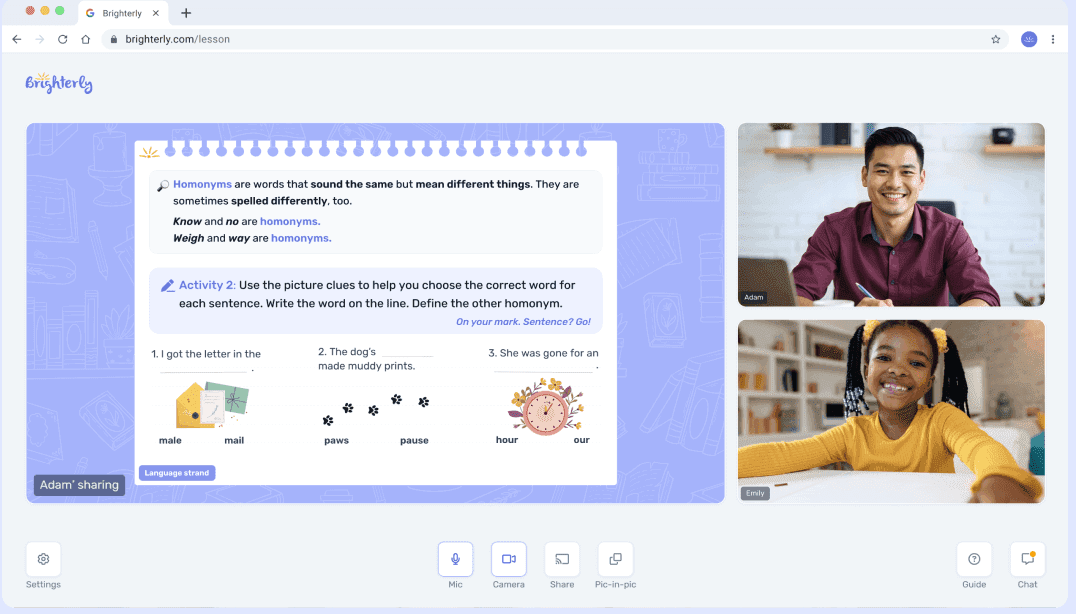How to Help Your Child Build Confidence in Math
Math homework can turn into a battleground for many families. Parents struggle to help their kids with math, feeling their own flashbacks to not-so-distant school struggles. And this is no coincidence. Many students and even adults experience what is called math anxiety. For example, a study of US adults found that their median level of math anxiety was between “some” and “moderate”.
Whatever the level of math anxiety, it’s not just a nuisance — it becomes a real barrier hindering kids from achieving better results and influencing their career choices. This is why building real math confidence is the first step toward raising confident, competent adults.
If you’re reading this, your child's math confidence is probably around those some’s and moderate’s. Luckily, as parents, we can access online math classes for kids, helping them cultivate math confidence at home without tantrums, tears, and frustration.
Why Confidence Matters In Math
Confidence doesn’t come from always being prepared or knowing the right answers. Confidence is all about not fearing to be wrong. When children feel like it’s okay to fail, they approach new concepts with curiosity instead of fear, even if the solution isn’t that obvious right away. Yet, educators in traditional classrooms tend to overlook the weak foundation in earlier grades and hope to build math confidence in kids later on. Unfortunately, this snowballs into bigger struggles later on, making it even more miserable.
In reality, confidence in math is what we’re all supposed to be looking for. Here’s why: confident children tend to ask more questions, stay engaged longer, and recover quickly from mistakes. I remember my own experience failing at math — being scared to death to ask questions actually prevented me from progressing early on. This led me to shut down instead of pausing, breaking a word problem into smaller steps, and going on strong.
Ways To Become More Confident in Math
Here are some proven strategies to help your child become more confident in math and alleviate fear.
Using gamified learning and adaptive plans
Leveraging game-based learning to help students boost math confidence is one of the most effective ways to do it. When children are provided with adaptive practice, and each challenge is “just right” to fill a certain learning gap, math becomes more approachable and easier to understand. And personalized math lessons for kids are precisely the way to boost kids’ confidence levels.
Boosting confidence through social and emotional support
Another effective way to improve math confidence is through social and emotional support. One way to do it is to normalize mistakes. When parents and educators treat mistakes as opportunities to grow, children stop being afraid to get answers wrong. As a result, they show better curiosity and performance, all while building real confidence.
Using tools and manipulatives to improve math understanding
As a parent, you can use additional tools and materials to help your child improve math skills and boost confidence. This is a wonderful idea for homeschooled families, or parents ready to tutor their kids at home:
Use tools like blocks or fraction tiles to visualize abstract concepts.
Want to help process math problems? Number lines, charts, and diagrams are exactly what you need.
Use PDF math worksheets at home for some extra practice.
Fun ways to learn math online are also available to you through online math classes or interactive math apps.
Strengthening Math Confidence with Brighterly
Brighterly math and reading platform is an e-learning program for students in grades 1–9. It connects the US students with expert math and reading tutors for 1-on-1 gamified tutoring.
How Brighterly math lessons boost math confidence and skills
What I like most about the platform is that Brighterly tutors are specifically trained to teach math online through gamified learning. For example, instead of using drilling exercises, they use storytelling, props, and math games to help kids see logic behind math concepts. This approach turns kids math tutoring into a fun activity where they can freely explore and play. Can you imagine how learning becomes effective when kids don’t know that what they really do is studying?
Brighterly uses success signals, in-game rewards, and positive reinforcement to help kids build confidence and reduce anxiety. The platform’s tutors turn practice into a real motivating experience and develop a positive approach towards math and problem-solving.
Here are some of the additional Brighterly perks that most parents find interesting:
Free demo session. Allows you and your child to see if the platform matches your expectations.
Lessons built into your schedule. Lessons meet your kid whenever they’re ready.
Affordable pricing starting from $17.3/lesson (applies to the longest plan with 3 lessons/week).
Personalized lessons adapted to the child’s academic needs.
Free learning resources designed by expert tutors.
Boosting Math Confidence: Age-Specific Tips
You can’t really help your child improve confidence in math without considering what they like, how they learn, and staying focused. All that is related to their age, since it develops differently at each learning stage. Here are a few tips to make it both enjoyable for you and your kid:
Elementary: Number sense FIRST! Involve hands-on experiences and problem-solving through games and play activities.
Middle and high school: Add some more challenging problems, like data interpretation and reasoning behind things.
Conclusion: Math Confidence Is Not a Privilege
Math confidence is not a privilege — it’s an important part of each child’s life. For many parents, being confident in math seems like an impossible task, but there are ways to help our kids become better learners. By using gamified learning, social and psychological support, and hands-on tools, we can raise confident, capable learners who are not afraid to solve math problems. And with platforms like Brighterly, math confidence is just a few clicks away!


